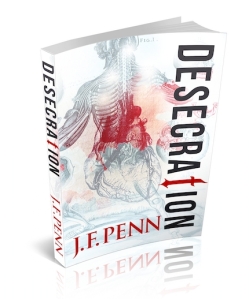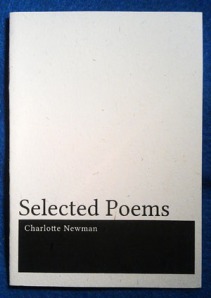Diane Shipley asked us last week whether we would consider spending a year reading only books by women. The Year of Reading Women project has become a huge talking point, yet the Vida statistics show that in the accustomed snafu little progress has been made in balancing the media’s gendered coverage of the literary world.
 (the book I’m currently getting excited about – Roz Morris’ literary dystopia, lifeform three)
(the book I’m currently getting excited about – Roz Morris’ literary dystopia, lifeform three)
For me, it is this that represents the real challenge – the representation of books by women in places like this rather than the actual reading of them. Putting the focus onto reading seems like a rather handy arrogation of responsibility on the media’s part.
I very much believe that where we find discursive barriers we should make ourselves into bulldozers. I have always tried, as a literary organiser and promoter, to create shows and programmes that go beyond the gender-imbalanced norms. On the other hand, the Vida statistics show not only the lack of representation of women’s books, but the lack of women in the media doing the writing about those books.
So, as a male commentator, I feel a natural conflict. Is it my place to write about books by women? Or is it my place to insist I am removed from public spaces and my place taken by a female commentator? I am very aware of the difficult position of “ally” in modern intersectional thought on diversity in all areas (and I’m extremely grateful to the author Christina Springer for sharing this great article. My own experience of being “on the receiving end” of allies comes in the sphere of mental health where I frequently come across organisations box-ticking their engagement duties by enlisting spokespeople to explain things on behalf of those of us who have mental health disabilities. I feel the bristle as they open their mouths and utter something that bears no relation at all to my experience yet leaves everyone seemingly contented that I have been duly “represented” with the result that I’m silenced twice over – by my “ally” and by the fact that their intervention means the space for further discourse is now closed. So I know that whenever I open my keyboard to tap out words on the matter of women in literature I am, at least in some part, not ameliorating but becoming part of the problem.
 (the last book I read that I loved, Desecration by Joanna Penn)
(the last book I read that I loved, Desecration by Joanna Penn)
So do I stay silent, or do I speak, or do I just shimmy round the subject and stick to the safer ground of writing about the things I’m expected to write about? The last of these is a non-starter. Experience tells me it’s a simple matter of taste that I prefer books written by women. It would be strange to write about books and omit so many those I love best in the spheres I write about most – the poetry of Vanessa Kisuule, Claire Trevien and Adelle Stripe, the literary fiction of Banana Yoshimoto and Elfriede Jelinek, the self-published surrealities of Lucy Furlong, Penny Goring, and Anna Fennel Hughes, the inspirational blogs and books of Viv Tuffnell, everything to do with the wonderful website For Books’ Sake.
(the brilliant poet, Claire Trevien, with whom I’ll be performing at this year’s Chipping Norton Literary Festival)
What I have done hitherto has been simply to reflect my tastes in my commentaries. I have promoted works I truly believe in by writers I love. I have talked about those works that provide taking off points for the themes and questions that matter to me. I have put on shows featuring performers whose words and style I love.
But Diane’s post has foregrounded a feeling that was always there, an inkling nudging me annoyingly in the shoulder going “oi, oi” and shrugging an “oh you know” every time I dare to shout “What?!” The feeling that I’m doing something political, and that it doesn’t always leave my mouth tasting of honey.
I have always known that what I speak about is political. It’s a choice. A choice made in a highly charged context of cultural discourse. It couldn’t not be political. And yet I have always sided myself loudly and overtly with those marginalised by mental health issues and let that whisper me sweet reassurances that I was doing it OK because mental health disability is an outsiderdom I’m firmly inside.
It’s comforting to construct these narratives for ourselves. If we close our eyes and listen to them (a telling metaphor in all its resonances) we can almost pretend intersectionality doesn’t exist. And yet it does. I am spoken for by those who silence my disability, and yet when I do speak I do so as a white male. When I write about women’s writing, I speak for them as those I resent speak for me. I can no longer pretend to myself that I’m just doing “good politics” and neatly avoiding “bad politics.”
So what’s the answer? I’m sure many readers will be wondering “what, you mean there’s a question?” Questions of intersectionality and allyship usually raise those responses. And they make the first part of my answer simple – if, next time an article like this appears, more people are at least aware that there’s a problem when men write well-meaningly about women and fewer people shrug “what problem?” then I’ll have done something right.
 (Anna Percy, the brilliant poet who co-runs with Rebecca Audra Smith and Sara Ellis Stirred Poetry, Manchester’s fabulous night of pro-women inclusive spoken word)
(Anna Percy, the brilliant poet who co-runs with Rebecca Audra Smith and Sara Ellis Stirred Poetry, Manchester’s fabulous night of pro-women inclusive spoken word)
The real answer, I think, is that just as it is impossible to speak unpolitically so it is impossible to speak from a position that is beyond reproach. We all speak from a privileged position of some kind. Our words will always exert power over someone, muffle the voice of someone. So the answer is not silence, or we would all be silenced. And the answer is not good intentions. Good intentions neither affect power networks nor the impact of our words. As much of an answer as I can give is to be as aware as possible of where we stand in these incalculably complex networks, to make way wherever possible for those voices our own voice silences, to acknowledge those voices that have shaped our own, and to create channels where we can for those voices to speak and be heard. Most of all I think the answer is for us not to believe we have the answer but to listen and learn to have the many possible answers spoken by those in a position to give.
I welcome any suggestions as to further answers to the issues raised. I also welcome any women writers whose works would interest readers of this blog to talk about them here.

